New York’s Struggling Music Venues Spotlight the Need for Federal Aid
Congress needs to step in to help #SaveOurStages Now.

Gateway Blog category interest
(Variety) The pandemic has crushed the live-entertainment business, and concert venues in particular, all over the world — but New York’s may have been hit the hardest in the U.S. Due largely to the density of the city and its mass-gathering-based culture, the virus struck New York first and fastest, and has claimed nearly 33,000 lives. Consequently, the city has some of the most strict social-distancing rules in the country, and the road to the return of its concert business is a complicated one.
But the virus’ devastating impact isn’t the only factor making the return of live entertainment such a daunting prospect. Unlike many cities, its tightly packed buildings provide little potential for venues to expand into outdoor space, and many performance areas are upstairs or downstairs, making socially distanced egress difficult. And while rent forbearance and negotiations with insurance or utility companies have brought some relief, PPP loans are rarely an option — those are designed to keep staff on the payroll, but without shows, there’s little work. Thus, most venues are hanging by a thread, often paying full or near-full insurance and utilities with effectively zero revenue.
According to a summer survey by the newly formed National Independent Venues Assn.,some 90% of the independent venues in the U.S. said they would be forced to close within months without federal aid.
For many, the main beacon of hope is the “Save Our Stages” Act, which aims to bring $10 billion in relief funding to independent venues; it is attached to the larger $2.2 trillion Heroes Act that Congress and the president are staging a public tug-of-war over. Despite strong bipartisan support, Save Our Stages shows little sign of passing before the election. (NIVA is holding a massive “Save Our Stages” virtual festival this weekend in partnership with YouTube to raise funds and awareness for the cause, with performances from Foo Fighters, Dave Matthews, Brittany Howard and more than 30 others from indie venues all across the country.)
In New York concert venues alone, there’s no shortage of evidence of the need for federal aid. And while surprising few of them have shut down permanently — yet — the heads of NYIVA, the local chapter of NIVA, Justin Kantor of Greenwich Village venue Le Poisson Rouge and Jen Lyon of Mean Red Productions, laid out just how daunting the current situation is.
“Eight out of ten New York venues have not been able to negotiate rent relief from landlords, according to [a NYIVA] survey — they’re on the hook for full rent with almost no money coming in,” Kantor says. “And most of those who have [received rent relief] have gotten deferrals and not reductions, so that’s hanging over their heads when they do reopen. The main reason we haven’t seen many closures is because landlords are sitting tight, but venues are in a very precarious position. There are very small profit margins in this business — most venues need at least 80-to-85?pacity [per show] to break even."
Lyon chimes in, “For New York, it will take about $40 million [in relief funding] to get us to January, which isn’t a huge, crazy number in the grand scheme of things, considering how much impact our industry has on the economy. I’m not sure the city or the state really understand the value of these venues,” she continues. “The city reaps so many benefits from us. We bring people to neighborhoods where nothing else is going on — before the pandemic, I threw parties in Chinatown, and I know that I flooded that neighborhood with revenue by bringing a thousand kids to a neighborhood they [otherwise] wouldn’t be in. How is that being overlooked?”
Kantor adds, “Even in a tourist center like Greenwich Village, if [venues like] the Blue Note and the Bitter End and us close and get replaced by drug stores, how many people will want to hang out here? The value of the real estate around us will go down.”
The hardship imposed by the pandemic isn’t limited to bricks and mortar — independent promoters need live entertainment and places to stage it. Alex Damashek, head of New York-based hip-hop promoter Move Forward Music, frequently staged concerts at venues like S.O.B.’s and Baby’s All Right, along with bigger rooms like Irving Plaza and Webster Hall.
“We were coming off of our best year in 2019 and riding high at the top of this year,” he tells Variety. “We were doing a lot of shows, we had a series with Complex [magazine] all set for South by Southwest — and then it all came crumbling down in March: We cancelled 25 shows. I’m lucky that as an independent promoter I don’t have the same overhead as a venue, but still, all of a sudden, the income turned off like a spigot.”
He spent the first weeks of the pandemic trying to figure out a workable business model to livestream concerts, “something that will continue post-pandemic and carry into the future,” he says, and Move Forward announced a livestream series with Twitch earlier this month that launches with a two-day virtual festival this weekend. It includes performances by such up-and-coming hip-hop acts as UMI, Guapdad 4000 and others, as well as discussion panels.
While Move Forward’s Twitch livestreams are initially free, Damashek’s goal is to leverage his company’s reputation as a tastemaker for new artists and create a subscription model where the paid livestreams “add layers: behind-the-scenes footage, interviews, custom emojis and having the ability to ask questions during a talk-show format,” he says, citing Erykah Badu’s unconventional, interactive livestreams from her home studio earlier this year — which featured different setlists and settings and substantial viewer input — as a model.
“We’ll never replace live concerts with livestreams,” he says. “But Erykah’s livestreams were really inspiring — they were live performances that weren’t necessarily a concert but were still a special experience, and that’s what we’re trying to build.”
Peter Shapiro, who owns the Brooklyn Bowl franchise (with locations also in Las Vegas and Nashville) and the Capitol Theater in Port Chester, just north of the city, has also used livestreams and other assets to help stem the financial bleeding.
“We’ve pivoted,” he tells Variety. “Our venues are all wired, so we’re doing livestreams [with artists performing in the venues with no audience], particularly from the Brooklyn Bowl in Nashville. About six weeks ago we started selling tickets for them; we sold a couple thousand for a Margo Price show, and if you put, say, a $10 minimum on them, a lot of people choose to pay more, just to help out. We’re selling merch; we’re broadcasting archived livestreams of past concerts. We’re adjusting and trying to stay flexible.
“Obviously, it’s not the same as what it was — at all,” he allows. “But it’s meaningful.”
However, for many New York venues, livestreaming isn’t necessarily a viable option: To stage a show, even with no audience, would mean the venue is technically open, and “if we try to do that, does it drive up our rent?,” asks Kathryn Aberlin of New York-based promoters Bowery Presents, which operates Brooklyn Steel, Webster Hall, Rough Trade and other venues in the city. Staffing is an issue as well: “We had to furlough a lot of people, and you can’t un-furlough someone for one event and then re-furlough them, so does that make sense? There’s not really a clear answer.”
Like most venues, even being closed is an expensive proposition for Bowery’s rooms. “We’re still paying utilities: We have to keep our venues at a certain temperature to be sure the equipment doesn’t get ruined; we still have to pay insurance,” Aberlin says.
Those problems and others are also being faced by Elsewhere, a popular three-year-old venue specializing in indie-rock located in the Brooklyn neighborhood of Bushwick, which was just starting to get into the black when the pandemic hit. It has an advantage not many venues have in the form of Dhruv Chopra, who is CFO of the venue and the connected music-events company PopGun Presents and has a strong background in finance (he worked as an investment analyst for five years before taking the plunge into the venue business).
“We turned a small profit in 2019 and were about to start paying off our debt and investors” when the pandemic hit, he says. On March 13, they laid off “98 percent” of their staff — “we’ve helped them as much as we could,” he says sadly — and applied for PPP loans and an Economic Injury Disaster Loan; they are also fortunate to have a landlord who “gets it” and renegotiated with their insurance company.
While Elsewhere has a small dining operation on its roof that has “helped keep the building and brand active,” Singh says, “we’re still bleeding money every month. And we’re looking at no meaningful business until spring or summer of 2022.”
Other promoters have started looking into alternate businesses. Adam Torres, a New York-based promoter and artist manager who handles Latin, hip-hop and other genres and runs a seven-person company, admits, “I was in a fog for the first weeks of the pandemic, to be honest with you. But once I shook it off, we started pivoting: Livestreams, virtual shows, although those aren’t really profitable — and where we can, we’re doing free events underwritten by brands.” But he also hedged his bets by investing in restaurant and hospitality businesses.
Torres feels, as do many in the business, that the government has “turned a blind eye” to the live industry’s struggle. “We’ve been cut off at the knees,” he says. “Give us a lifeline to survive with Save Our Stages. Without a 2021 season, whether you’re an independent or a conglomerate like Live Nation or AEG, I don’t see how 80 to 90 percent of these businesses can survive.”
Of governmental support, Lyon says, “Though we’ve had communications with the city and the state, we still have no solutions, no opening plans, and no funding from them. Thanks to NIVA, we’re talking to venues all over the country — Oregon, Seattle [King County in Washington], Nashville and Chicago have money earmarked. So other cities and states are finding funding for independent venues — we need New York to do the same.”
Contacted by Variety, Ariel Palitz, Senior Executive Director of the Office of Nightlife at New York Mayor Bill deBlasio’s Office of Media and Entertainment, says, “We’re fulfilling our purpose as a dedicated support to nightlife during this pandemic. We’ve been in constant contact with venues, amplifying their concerns, advocating for their needs, keeping them informed and connecting them to resources to help them survive and hopefully reopen and recover.” She cited several efforts, including a free mediation program to help venues resolve conflicts with landlords and neighboring businesses; multi-agency “Town Calls,” where venues can get answers to their questions directly from government officials; and a checklist, awesomely titled “What to Expect When You’re Inspected,” to help operators understand new rules and what inspectors are looking for, among other endeavors.
Aberlin, while acknowledging that “we’re all in a situation we’ve never been in,” asks whether the city or state can provide some protection for venues when they do open. “Is there a liability waiver the city or state can provide?,” she asks. “Because if we’re legally allowed to do, say, a 50-percent capacity show and we have all of our [distancing] measures in place, but someone gets COVID and they try to come after us with a ton of lawsuits, we may not be able to sustain ourselves, and that’s true all over the country.”
Like everyone, she remains focused on the day the music starts playing again, although no one has any idea when that might be or what it will look like.
“It’ll come back and it’ll reinvent itself — that’s what we do and that’s what we’ve always done, and if it means more independents come up and more people have opportunities, I’m all for that. But,” she asks, “when we do open up there’s gonna be a flood of shows, what state will fans be in financially, and what will that mean for ticket prices? How far can people’s dollars stretch if they start getting evicted or laid off?
“It’s gonna be a brave new world on the other side of this,” she concludes. “People are aching for live music and that’s not going to change, so I’m excited for that — wherever and however it happens.”
More Photos
More from Gateway Blog
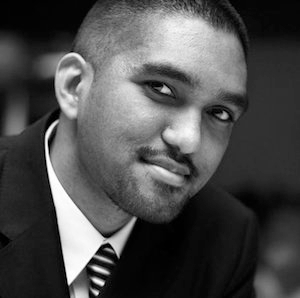
Gateway Blog
Music Biz Basics
A 101 Type Guide to the Basics of the Music Business with Music Business Attorney Kamal Moo
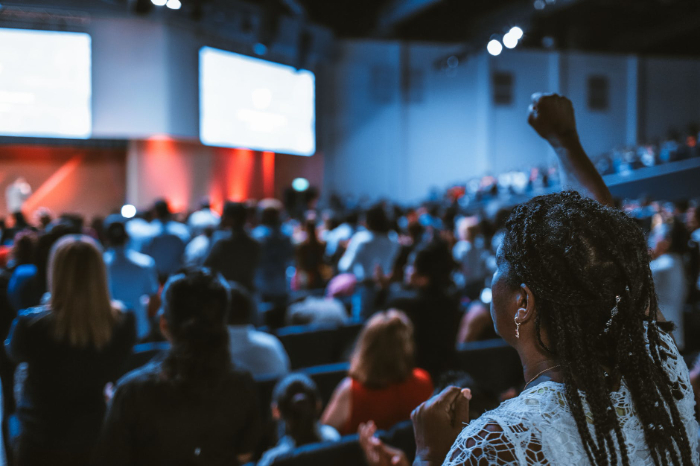
Gateway Blog
Music Business Conferences in 2021 You Should Know About
Check out a mixture of live and virtual music industry conferences this year.


Gateway Blog
Eventbrite Unveils 2020 "Inside Look Report,"
A Comprehensive Study on Human Connection Amidst a World of Online Experiences
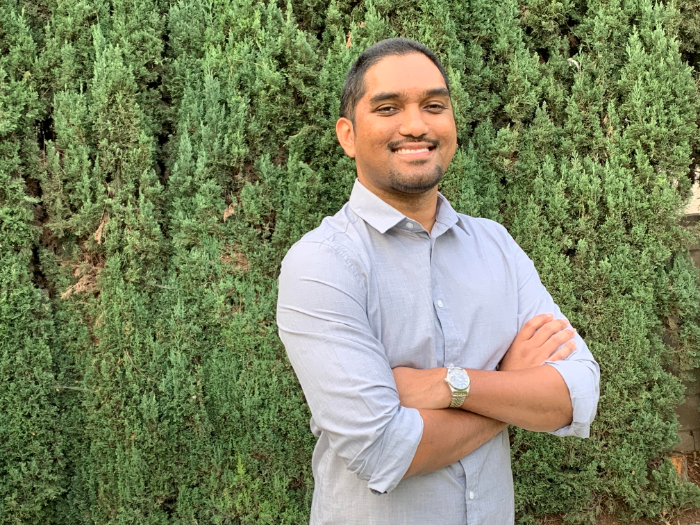
Gateway Blog
A Discussion with Music Attorney Kamal Moo
An interview every new band or musician should read

Gateway Blog
When and why does your band need a manager?
How and when to choose the most important member of your team

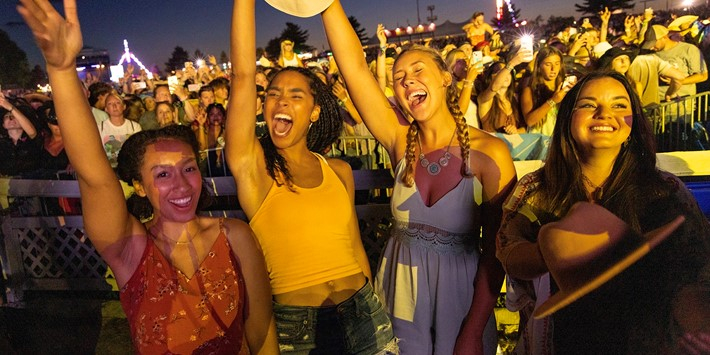
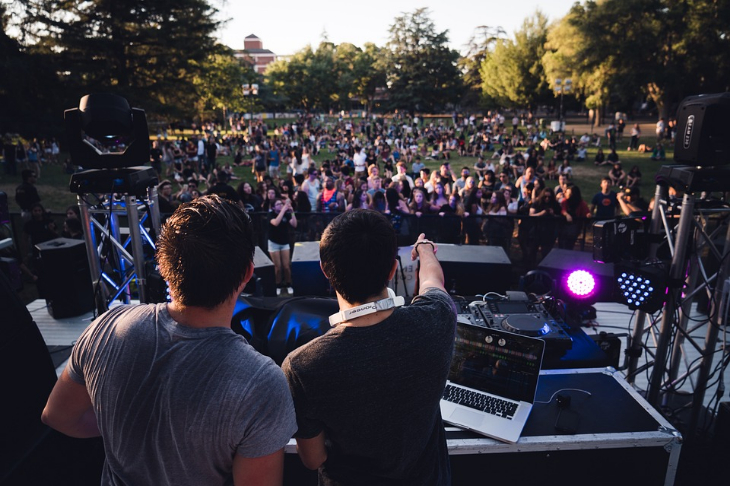


 Newsletter Signup
Newsletter Signup